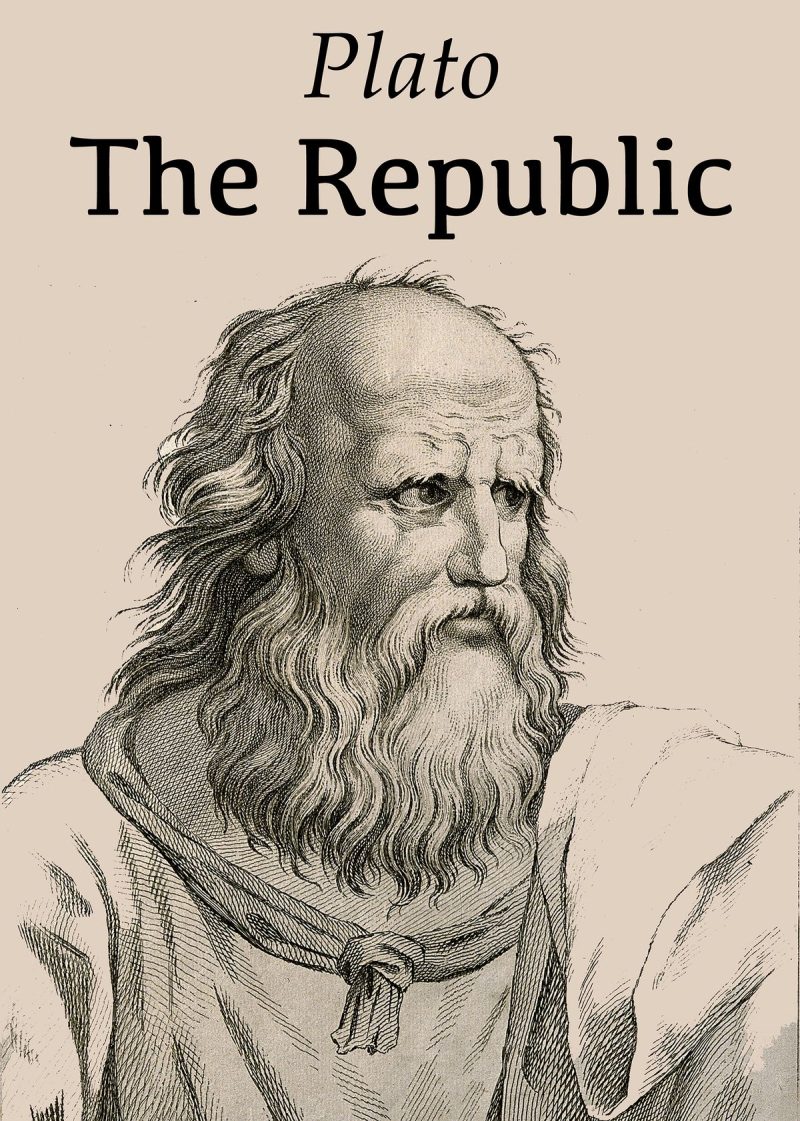Plato’s The Republic is one of the most enduring works of Western philosophy, written around 380 BCE. It presents a comprehensive vision of justice, the ideal state, and the role of philosophy in public life. Through the voice of Socrates, Plato constructs a philosophical utopia ruled by reason, guided by wisdom, and structured for harmony. Yet despite its influence, The Republic has drawn criticism for its authoritarian elements, rigid social hierarchy, and unrealistic ideals. This article explores both Plato’s vision and its most significant critiques.
Plato’s Vision in The Republic
At the core of The Republic is the question: What is justice? Plato begins this exploration in Book I, where Socrates challenges conventional definitions of justice offered by Cephalus, Polemarchus, and Thrasymachus. Justice, Socrates argues, is not simply about obeying laws or serving interests of the strong but about harmony—both within the individual and in society.
In Books II through IV, Plato outlines his model of the ideal city, or kallipolis. He divides the population into three classes: rulers (philosopher-kings), auxiliaries (warrior class), and producers (farmers, artisans, etc.). Justice, in this context, is each class performing its proper function and not interfering with the others (Book IV, 433a–434c).
Plato also introduces the tripartite soul in Book IV, aligning it with the class structure: reason (rulers), spirit (auxiliaries), and appetite (producers). A just individual mirrors a just city when reason governs, aided by spirit, and appetite is kept in check.
In Books V to VII, Plato outlines his most controversial ideas: philosopher-kings, the abolition of the family among the guardian class, and eugenic breeding. Only philosophers, who understand the Forms and especially the Form of the Good, can lead justly. The Allegory of the Cave (Book VII, 514a–520a) symbolizes the philosopher’s journey from ignorance to knowledge, emphasizing education as a path to truth.
Plato concludes by comparing just and unjust lives, arguing that the just life, though harder, is ultimately more fulfilling and aligned with the soul’s nature (Book IX, 580d–583b).
Criticisms of The Republic
Despite its philosophical depth, The Republic has faced significant criticism, particularly for its political and social ideas.
1. Authoritarianism and Censorship
Plato’s ideal state is often criticized as authoritarian. The ruling philosopher-kings possess absolute power, and the general population has no say in governance. There is strict censorship of poetry and music (Book III, 398a–403c), as Plato argues that the arts can corrupt the soul. This suppression of free expression has troubled many thinkers.
Karl Popper, in The Open Society and Its Enemies (1945), famously condemned Plato as the “father of totalitarianism,” arguing that The Republic promotes a rigid, hierarchical society where the state controls all aspects of life. Popper writes:
“Plato’s state is static, closed, and totalitarian… ruled by a master class that decides what is good for the rest.”
2. Elitism and the Philosopher-King
The notion that only philosophers are fit to rule has been labeled elitist and unrealistic. It assumes that philosophical wisdom naturally leads to moral virtue, an assumption many reject. As British philosopher Bertrand Russell notes in A History of Western Philosophy (1945):
“Plato thinks that philosophers should be kings, but he does not consider the corrupting effect of power upon the philosopher himself.”
3. The Role of Women and Family
While Plato’s inclusion of women as potential rulers (Book V, 451e–457c) was progressive for his time, his abolition of the family among the guardian class is disturbing to many. Children are to be raised communally without knowing their parents, and marriages are arranged by the state (Book V, 460b–466d). Critics argue this undermines personal freedom and emotional bonds.
4. Practicality and Utopianism
Plato’s ideal city has also been dismissed as utopian and impractical. Aristotle, Plato’s student, criticized the idea of communal property and family in his Politics, arguing:
“What is common to the greatest number has the least care bestowed upon it.”
He believed that such radical unity would lead to conflict and resentment, not harmony.
Plato’s The Republic remains a cornerstone of philosophical inquiry into justice, governance, and the soul. While his vision of the ideal state has been criticized for its authoritarian and impractical elements, many of his insights remain deeply relevant.
Plato was right to warn against the dangers of uninformed leadership in his ship captain analogy (Book VI, 488a–489d), where he compares a state to a ship mismanaged by ignorant sailors while the true navigator — the philosopher — is ignored. This reflects the modern challenge of governance in societies where popularity often outweighs wisdom.
Similarly, the Allegory of the Cave (Book VII, 514a–520a) still resonates as a metaphor for human ignorance and the painful process of enlightenment. In an age of misinformation and shallow media consumption, Plato’s call to seek truth beyond shadows on the wall is more important than ever.
Plato’s intellectual influence is also validated by later thinkers:
- Immanuel Kant admired Plato’s notion of the noumenal world — a realm of pure forms — which deeply influenced his own moral philosophy.
- Alfred North Whitehead famously said, “The safest general characterization of the European philosophical tradition is that it consists of a series of footnotes to Plato.”
- Simone Weil praised Plato for elevating attention, truth, and justice as spiritual disciplines, seeing his work as a bridge between philosophy and mysticism.
Yet despite these enduring truths, The Republic is ultimately not a practical blueprint for society. Its rigid class structure, lack of personal freedom, and reliance on philosopher-kings assume an unrealistic level of moral and intellectual purity. As a model for real-world politics, it is flawed. But as a philosophical guide, it remains a brilliant and necessary provocation — a challenge to think more deeply about justice, leadership, and the good life.







